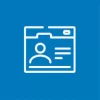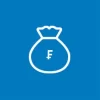Swiss bank customers are becoming more open to the idea of moving to a different bank. But how can you find a bank that matches your needs? Here, moneyland.ch provides a collection of useful tips for choosing the right bank.
1. Check what the bank offers
There is no one bank which suits everybody’s needs. Some Swiss banks have specialized in specific services, such as private accounts, retirement planning, personal loans, credit cards, or stock brokerage. There are also universal banks which offer a full palette of services, from personal loans to mortgages, asset management, savings accounts, and retirement funds.
You should choose a bank which has exceptionally-good offers for the specific banking services you need. If you use digital banking a lot, then the simplicity and functionality of online banking and mobile banking services are also worth considering. You can find points to consider when choosing a private account in the moneyland.ch guide to private accounts.
2. Compare the costs
The right bank should not only be secure and have friendly employees. It should also charge the lowest possible fees for the services you use. Banking is all about your money, and high bank fees take a bit out of your money.
Swiss bank customers often underestimate the costs of banking. One reason for this is that costs are often somewhat hidden, and often, there is no clear list of all possible fees and charges.
There are hundreds of different fees which can apply, depending on the situation and product in question. Understanding overall costs is difficult for most people. To make it easier for you to compare banking offers, moneyland.ch offers a number of practical, interactive banking comparisons. These comparisons let you immediately see how much using different bank accounts will cost you, while all the difficult calculations are computed in the background.
Ideally, you should regularly compare fees and charges for the banking services you use. Some of the most important banking products to compare include:
3. Compare interest rates for savings
Regularly comparing interest rates is worth it, especially as interest rates begin to move upwards from the previous negative interest phase. While fees and charges are more important for private accounts, it is worth regularly checking interest offers for savings accounts. If you have money which you want to invest at a fixed interest rate, then you should consider medium-term notes and fixed deposits.
You can use these comparisons to compare interest paid by banks for savings:
Compare savings accounts
Compare pillar 3a accounts
Compare medium-term notes
Compare vested benefits accounts
4. Choose a bank with good customer service
Good customer service can save you a lot of headaches. While friendly employees are a definite plus, the most important thing is that bank employees can properly answer your questions and help you to solve problems. The general rule is: The more complicated a banking service is, the more important it is that the bank has well-qualified employees and consultants. And of course, good customer service is more important for a bank which you use for the bulk of your banking activities, than for a bank where you only have a pillar 3a account, for example.
Sometimes, you will have to make compromises. For example, a bank which does not have the most favorable fees and interest rates on the market may offer excellent customer service and personal consultation.
5. Use more than one bank
There is no one bank which tops the list in every aspect. The cheapest or best bank is different for practically every product category.
For example, you do not have to get your pillar 3a account, your retirement fund, or your credit card from the same bank where you get your mortgage or private account. For investing and trading too, there are often more affordable options than using your day-to-day bank. Specialized online stock brokers and digital asset managers are almost always cheaper.
Dividing your assets between multiple banks is also beneficial from a security perspective. If you portion your savings across several banks, you are better protected against bank bankruptcies.
6. Security comes first
Security is a central pillar of banking. But for people on the outside, it is hardly possible to determine how secure a bank really is. There are bank creditworthiness ratings from agencies like Moody’s, S&P, and Fitch, but only relatively few Swiss banks have these ratings. Additionally, the accuracy of these ratings is often called into question.
Still: All banks which hold a Swiss banking license are considered to be secure. The Swiss federal financial regulator Finma is responsible to ensure that. An unlimited government guarantee for account balances can add an additional layer of protection. 21 of the 24 Swiss cantonal banks have such state guarantees. You can further minimize risk by dividing your money between several different Swiss banks.
Be especially attentive when choose a stock brokerage account or asset management service: If you choose a foreign trading platform or asset manager instead of a licensed Swiss bank, make sure to consider all possible security aspects carefully. It is still relatively common for Swiss investors to get caught up in investment scams.
7. Take a look at neobanks
The number of Swiss neobanks – banks or bank subsidiaries which offer banking services via mobile apps and/or web portals – is on the rise. Neobanks typically impress with exceptionally user-friendly digital banking and banking services which are more affordable than those of conventional banks.
Neobanks still do not provide all of the services provided by conventional Swiss banks, but they are an alternative for specific banking products, or as a solution for supplementary accounts. For example, there are Swiss neobanks which have exceptionally good terms and conditions for private accounts with debit cards, pillar 3a retirement saving solutions, and digital asset management services.
More on this topic:
Tips for changing your bank account
Compare Swiss bank accounts and payment cards
Compare Swiss investment and retirement-saving solutions
Compare Swiss loans and mortgages













